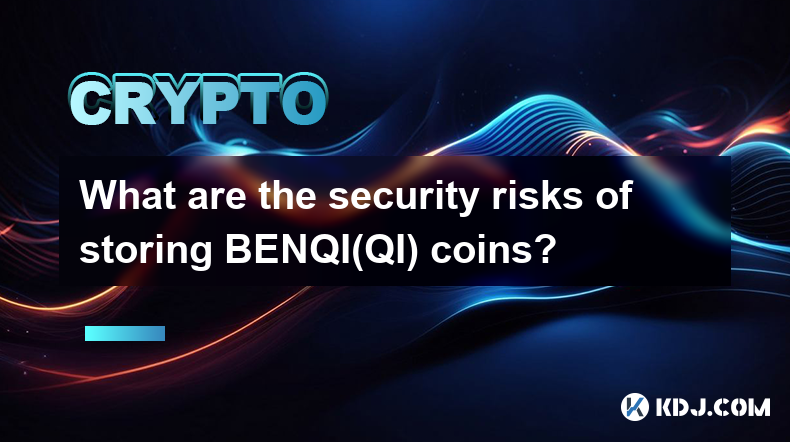-
 Bitcoin
Bitcoin $108,879.8879
0.11% -
 Ethereum
Ethereum $2,565.0410
0.07% -
 Tether USDt
Tether USDt $1.0001
0.00% -
 XRP
XRP $2.2915
-0.14% -
 BNB
BNB $660.7569
-0.20% -
 Solana
Solana $151.1919
-0.78% -
 USDC
USDC $1.0000
0.00% -
 TRON
TRON $0.2869
-0.14% -
 Dogecoin
Dogecoin $0.1698
-0.98% -
 Cardano
Cardano $0.5832
-0.83% -
 Hyperliquid
Hyperliquid $38.2151
-3.65% -
 Sui
Sui $2.8819
-1.10% -
 Bitcoin Cash
Bitcoin Cash $498.0045
0.53% -
 Chainlink
Chainlink $13.3860
-1.54% -
 UNUS SED LEO
UNUS SED LEO $9.0541
-0.22% -
 Stellar
Stellar $0.2535
1.00% -
 Avalanche
Avalanche $18.0791
-0.65% -
 Shiba Inu
Shiba Inu $0.0...01185
0.83% -
 Toncoin
Toncoin $2.7669
-1.12% -
 Hedera
Hedera $0.1575
-1.49% -
 Litecoin
Litecoin $86.3735
-1.06% -
 Monero
Monero $316.7337
-1.19% -
 Dai
Dai $1.0000
0.01% -
 Polkadot
Polkadot $3.3611
-0.82% -
 Ethena USDe
Ethena USDe $1.0002
0.01% -
 Bitget Token
Bitget Token $4.2618
-1.76% -
 Uniswap
Uniswap $7.4587
0.85% -
 Aave
Aave $282.3607
-1.88% -
 Pepe
Pepe $0.0...01004
-0.06% -
 Pi
Pi $0.4576
-0.29%
What are the security risks of storing BENQI(QI) coins?
2024/12/23 01:33

Key Points
- Understanding the nature of BENQI (QI) coins
- Assessing the security risks associated with hot wallets
- Evaluating the risks of centralized exchanges
- Exploring the benefits and risks of hardware wallets
- Considering the security measures implemented by specific platforms
Article Content
1. Understanding the Nature of BENQI (QI) Coins
BENQI (QI) is the native token of the BENQI liquidity market protocol, an automated market maker (AMM) and lending platform built on the Avalanche blockchain. QI tokens serve as governance tokens, enabling holders to participate in protocol decisions and proposals, including updates to the protocol's interest rates and parameters. They also accrue rewards for liquidity providers on the platform.
2. Assessing the Security Risks Associated with Hot Wallets
Hot wallets are software applications that manage and store private keys, allowing users to access their cryptocurrencies. They are generally connected to the internet, providing convenience and accessibility. However, this connectivity also introduces security risks:
- Hacking: Hot wallets can be vulnerable to hacking attempts, where attackers gain unauthorized access to private keys and steal funds.
- Malware: Malware can infect devices and compromise hot wallets, enabling attackers to siphon off funds without the user's knowledge.
- Phishing: Phishing scams attempt to trick users into revealing their private keys or seed phrases through fraudulent emails or websites.
3. Evaluating the Risks of Centralized Exchanges
Centralized exchanges (CEXs) are platforms that hold users' cryptocurrencies on their own servers, providing buying, selling, and trading services. While CEXs offer convenience and accessibility, they also introduce centralization risks:
- Custodial Risk: Users trust CEXs to safeguard their assets, raising concerns about security breaches or unauthorized access to funds by exchange employees or third parties.
- Regulation: CEXs are subject to government regulation, which may restrict access to certain services or impose KYC/AML requirements that compromise privacy.
- Counterparty Risk: In the event of insolvency or closure, users may experience difficulties retrieving their funds held by the exchange.
4. Exploring the Benefits and Risks of Hardware Wallets
Hardware wallets are physical devices that store private keys securely offline. They provide enhanced security compared to hot wallets and CEXs:
- Offline Storage: Hardware wallets keep private keys isolated from the internet, reducing the risk of hacking and malware attacks.
- Physical Security: Hardware wallets typically incorporate physical security measures, such as two-factor authentication or passphrases, to prevent unauthorized access.
- Backups: Hardware wallets allow for secure backups, enabling recovery of funds in case of device loss or failure.
However, hardware wallets also have potential drawbacks:
- Cost: Hardware wallets can be more expensive than other storage options.
- Complexity: Using hardware wallets requires a certain level of technical expertise and understanding of cryptocurrency concepts.
- Convenience: Accessing funds from hardware wallets can be less convenient than using mobile or online wallets.
5. Considering the Security Measures Implemented by Specific Platforms
When selecting a platform to store BENQI (QI) coins, it is essential to evaluate the security measures implemented by specific providers. These measures may include:
- Encryption: Strong encryption algorithms to protect keys and data
- Multi-Factor Authentication (MFA): Additional layers of security requiring multiple authentication methods
- Insurance Coverage: Protection against financial losses due to hacks or theft
- Regular Security Audits: Independent evaluations of security protocols to identify and address vulnerabilities
- Compliance with Standards: Adherence to industry best practices and regulations
FAQs
1. What are the best practices for securing BENQI (QI) coins?
- Use reputable and secure exchanges or wallets
- Enable two-factor authentication (2FA) on all accounts
- Store private keys securely and avoid sharing them
- Keep software and devices updated with security patches
- Be vigilant against phishing scams and malicious links
2. Is it safe to store BENQI (QI) coins on Binance?
Binance is a popular and reputable exchange, but no platform is immune to security risks. It is advisable to diversify storage across multiple wallets and platforms, and to use additional security measures such as hardware wallets and MFA.
3. How can I recover BENQI (QI) coins if my wallet is compromised?
If possible, move funds to a secure wallet or exchange. Contact the support team of the platform where the compromise occurred and provide as much information as possible. File a police report if necessary.
免责声明:info@kdj.com
所提供的信息并非交易建议。根据本文提供的信息进行的任何投资,kdj.com不承担任何责任。加密货币具有高波动性,强烈建议您深入研究后,谨慎投资!
如您认为本网站上使用的内容侵犯了您的版权,请立即联系我们(info@kdj.com),我们将及时删除。
- Bitcoin Solaris Market Launch: A New Dawn or Just Another Altcoin?
- 2025-07-08 20:30:12
- Bitcoin, Memecoin Mania, and the All-Time High Hunt: What's Next?
- 2025-07-08 20:30:12
- Byrq Coin: Scam or Savior? A Deep Dive Review
- 2025-07-08 20:50:12
- Shiba Inu's Burn Rate Bonanza: Can Crypto Burns Ignite a Price Rally?
- 2025-07-08 20:50:12
- 电信,注入和验证者:深入了解网络安全和增长
- 2025-07-08 21:10:12
- ROM:黄金时代 - 半百万预注册和加密战利品!
- 2025-07-08 21:15:12
相关百科

How to customize USDT TRC20 mining fees? Flexible adjustment tutorial
2025-06-13 01:42:24
<h3>Understanding USDT TRC20 Mining Fees</h3><p>Mining fees on the TRON (TRC20) network are essential for processing transactions. U...

USDT TRC20 transaction is stuck? Solution summary
2025-06-14 23:15:05
<h3>Understanding USDT TRC20 Transactions</h3><p>When users mention that a USDT TRC20 transaction is stuck, they typically refer to ...

How to cancel USDT TRC20 unconfirmed transactions? Operation guide
2025-06-13 23:01:04
<h3>Understanding USDT TRC20 Unconfirmed Transactions</h3><p>When dealing with USDT TRC20 transactions, it’s crucial to understand w...

How to check USDT TRC20 balance? Introduction to multiple query methods
2025-06-21 02:42:53
<h3>Understanding USDT TRC20 and Its Importance</h3><p>USDT (Tether) is one of the most widely used stablecoins in the cryptocurrenc...

What to do if USDT TRC20 transfers are congested? Speed up trading skills
2025-06-13 09:56:41
<h3>Understanding USDT TRC20 Transfer Congestion</h3><p>When transferring USDT TRC20, users may occasionally experience delays or co...

The relationship between USDT TRC20 and TRON chain: technical background analysis
2025-06-12 13:28:48
<h3>What is USDT TRC20?</h3><p>USDT TRC20 refers to the Tether (USDT) token issued on the TRON blockchain using the TRC-20 standard....

How to customize USDT TRC20 mining fees? Flexible adjustment tutorial
2025-06-13 01:42:24
<h3>Understanding USDT TRC20 Mining Fees</h3><p>Mining fees on the TRON (TRC20) network are essential for processing transactions. U...

USDT TRC20 transaction is stuck? Solution summary
2025-06-14 23:15:05
<h3>Understanding USDT TRC20 Transactions</h3><p>When users mention that a USDT TRC20 transaction is stuck, they typically refer to ...

How to cancel USDT TRC20 unconfirmed transactions? Operation guide
2025-06-13 23:01:04
<h3>Understanding USDT TRC20 Unconfirmed Transactions</h3><p>When dealing with USDT TRC20 transactions, it’s crucial to understand w...

How to check USDT TRC20 balance? Introduction to multiple query methods
2025-06-21 02:42:53
<h3>Understanding USDT TRC20 and Its Importance</h3><p>USDT (Tether) is one of the most widely used stablecoins in the cryptocurrenc...

What to do if USDT TRC20 transfers are congested? Speed up trading skills
2025-06-13 09:56:41
<h3>Understanding USDT TRC20 Transfer Congestion</h3><p>When transferring USDT TRC20, users may occasionally experience delays or co...

The relationship between USDT TRC20 and TRON chain: technical background analysis
2025-06-12 13:28:48
<h3>What is USDT TRC20?</h3><p>USDT TRC20 refers to the Tether (USDT) token issued on the TRON blockchain using the TRC-20 standard....
查看所有文章

























































































